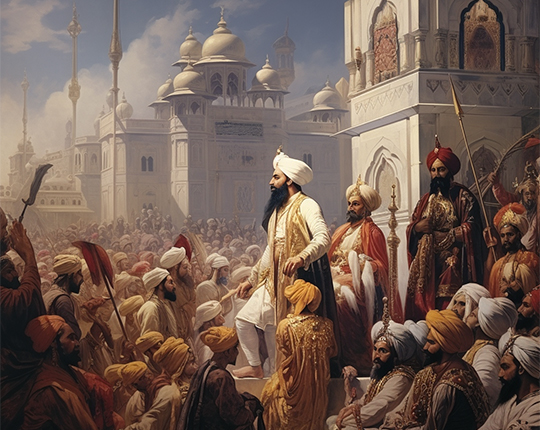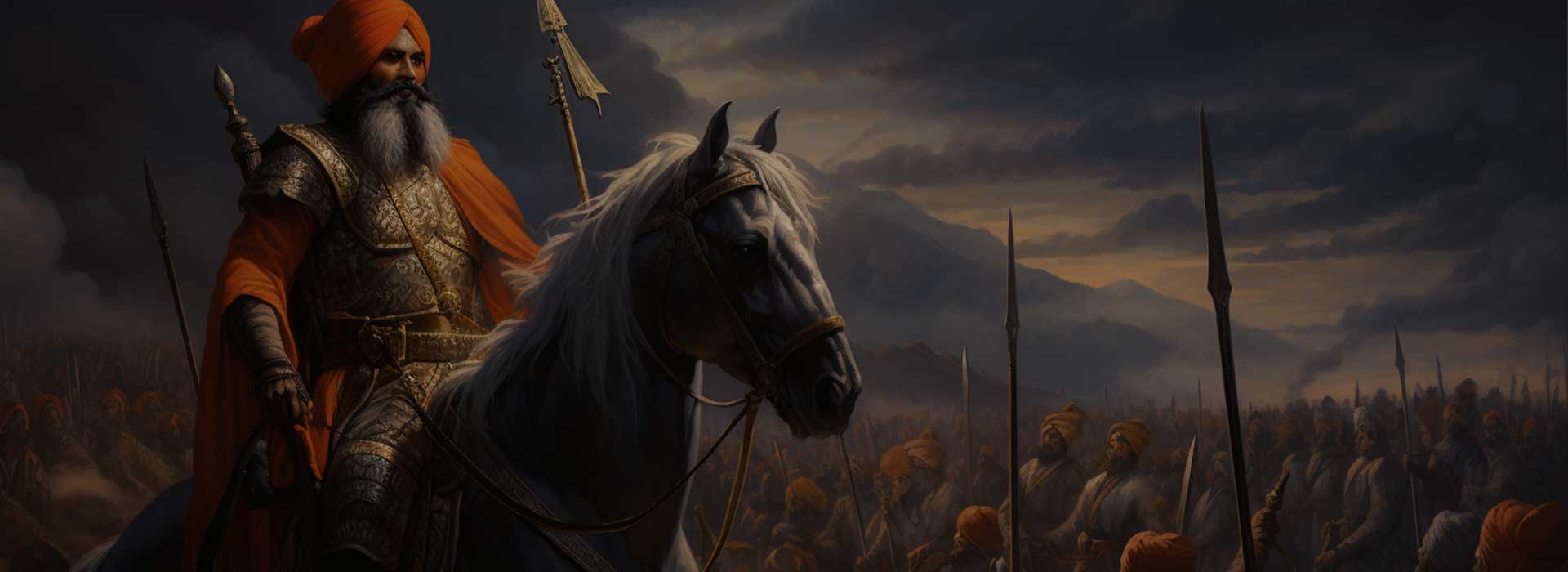Protection of Human Rights in Maharaja Ranjit Singh Empire
The kingdom of Maharaja Ranjit Singh was a place where everyone was treated equally, respected and had inclusive freedom.
His commitment to educational freedom and respect for various communities set the stage for a kingdom that cherished the rights and dignity of all.
In history, Maharaja Ranjit Singh’s time was full of fairness, unity, and prosperity. He wanted everyone, no matter who they were, to have a fair chance and good opportunities.
Looking back, let’s remember this leader with how his governance protected human rights.
Human Rights in Maharaja Ranjit Singh’s Empire: Protection of Human Rights in the Sikh Empire
Maharaja Ranjit Singh’s leadership covered a large area from Tibet to Sindh and from the Khyber Pass to the Sutlej.
During his rule, Sikhism promoted a society that included everyone, focusing on doing what was right and moral in both spiritual and political aspects.

Religious Freedom and Human Rights Protection
Ranjit Singh’s rule was known for respecting different religions.
Unlike past leaders, he didn’t make Sikhism the official religion.
He allowed everyone to freely practice their faith, bringing Muslims, Hindus, and Sikhs together.
He also appointed people from different communities, promoting equality.
Hence, in this context, his efforts safeguard religious freedom and bring up unity which are integral parts of the protection of human rights.
Democratic Principles and Meritocracy
Ranjit Singh hired workers based on merit, regardless of religion.
During the Anglo-Sikh wars, even Muslim forces fought with Sikhs, highlighting the unity he promoted.
It encouraged equality and fairness.
This inclusive employment policy contributes to the protection of human rights by ensuring equal opportunities for all.
Revenue Administration Protected Human Rights
The revenue administration implemented by Maharaja Ranjit Singh played a crucial role.
It ensured economic stability and the protection of human rights.
A fair land revenue system was introduced, assessing taxes based on land productivity and crop yields.
This equitable approach ensured that farmers paid taxes according to their ability.
Judicial System Ensuring Protection of Human Rights
Ranjit Singh’s governance had a judicial system to give justice to every citizen.
The courts under his reign fostered a sense of fairness, security and responsibility in diverse subjects.
Being operated without bias, the court in Ranjit Singh’s kingdom contributed to pivot around protecting human rights.
Educational Initiatives in Ranjit Singh’s Kingdom
Educated youth can stand up for their rights and values.
Schools and colleges were established, and it made the public aware.
He broke social norms by offering education opportunities to individuals from all social backgrounds.
This inclusive approach laid the foundation for a more enlightened and educated society.
Protection of Human Rights with Social Equality
During Ranjit Singh’s rule, the Mazhabis, who were historically marginalized, were included in his army.
This progressive step aimed to break caste barriers and promote social inclusivity in the empire.
It transparently showcased a commitment to social equality and human rights in his empire.
In this way, the Governance of Maharaja Ranjit Singh was indeed a pillar of human protection rights shielded with diverse policies.
From his leadership features, religious freedom, democratic system, and merit-based opportunities, to educational and social equality through the judicial system; he successfully showcased a progressive approach to human rights.
